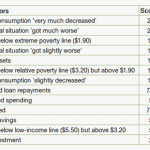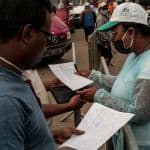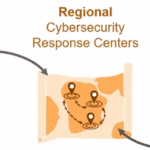Leveraging Tech During the Pandemic: How Apps Can Protect Lives in Developing Countries
Many developing countries are, understandably, being hit hardest by the ongoing COVID-19 pandemic. Large sections of the population in these emerging countries do not have access to healthcare — and even those who do may be unable to afford it.
According to the World Bank and the World Health Organization (WHO), half of the world’s population are estimated to lack access to essential health services, and each year health expenses force 100 million people into extreme poverty (living on $1.90 or less a day). This problem is most severe in developing countries, and it has been exacerbated by the COVID-19 pandemic, overwhelming already fragile healthcare systems. Moreover, in several developing countries in Africa and Latin America, fake news and misinformation about COVID-19 have been circulating widely on social media.
Fortunately, enterprises and other organizations have access to technology that can address these challenges. Increases in mobile access combined with app-based technology were already widening access to healthcare and lowering costs in emerging markets, even before the pandemic started. And since COVID-19 struck, other app-based technologies have been developed to help combat misinformation in these countries, ensuring that some of the poorest communities have evidence-based and up-to-date information that will protect their health and lives.
Below, we’ll discuss some of the many apps that are providing much-needed support in developing countries struggling with the effects of the pandemic.
How Apps are Addressing Misinformation and the Lack of Healthcare During the Pandemic
The Singapore-based social enterprise reach52 is aiming to reach the 52% of the world’s population who lack adequate healthcare.
Reach52 uses technology and community outreach to broaden access to health services while lowering costs at the same time. Its founder, Edward Booty, first tested this model in rural and low-income communities in Asia, where healthcare was expensive but technology was available. The company’s work now also extends to rural communities in Africa.
Reach52 is able to effect change through the following step-by-step process: First, it trains local community members (women in particular) as “Access Managers.” These managers then use reach52’s apps on a smartphone or tablet to gather information about other community residents (such as health symptoms and medical history), deliver targeted public health programs to them, and make sure these patients receive the necessary treatment by connecting them to relevant healthcare providers. Reach52 then shares the anonymized data it has gathered with government bodies and medical providers so they can improve the country’s healthcare systems.
Reach52 also works with private companies — in the areas of pharmacy, medtech and insurance — to deliver discounted medical products and services to those in need. To that end, the company again trains members of the local community, who use reach52’s app to take photos of residents’ prescriptions, which enable them to order medications, process payments, and organize the delivery and collection of medications to these patients.
Providing App-Based Education About COVID-19
Another promising company is Kayzen, a startup that is leveraging a number of apps to combat misinformation about coronavirus in developing countries. The company’s co-founder and CEO Tim Koschella and his team have launched an app-based educational campaign to help tackle the spread of fake news and misinformation about COVID-19 in Africa and Latin America. It provides reliable information about the virus from WHO through in-app video ads, available on Android devices in developing countries. The project is called #AppsFightCovid, and the ads inform users how best to prevent transmission, such as through regular handwashing and avoiding crowded places.
Kayzen has now translated these ads into various local languages, including Spanish, French, Portuguese and Arabic. Users who click on the ads are then able to join an interactive session with a WHO chatbot. The ads mainly run in-game and utility apps where the cost of advertising is low but engagement is high. These apps include Trivia Crack, Words of Wonder, WAMR, Wattpad and SHAREit.
When it comes to disseminating accurate health information related to COVID-19, Kayzen believes it can make a noticeable impact. As Ionut Ciobotaru, Chief Product Officer of PubNative, one of Kayzen’s backers said, “Mobile Apps are arguably the main medium for information distribution in developing economies. As they will potentially be hit hardest, that’s where help is needed most.” Kayzen believes that with an additional $80,000 in donations, it can reach 100 million people while generating 3 million chatbot sessions.
Impact Investing in App-Based Healthcare Technologies
There are many examples of app-based technologies that can have positive, far-reaching impacts in times of crisis, including the current pandemic. Impact investors are well-positioned to invest in this area. As a case in point, WASH (water, sanitation and hygiene), which is essential in protecting vulnerable communities from the spread of COVID-19, was already the fastest-growing sector for impact investment even before COVID-19, with a 33% compound annual growth rate from 2015 to 2019. The sector’s potential has only grown since then, as the virus has illustrated the crucial value of WASH initiatives and enterprises. Investors seeking impactful enterprises to support can now choose from a number of WASH-related apps like Well Beyond, mWater, and WashFit that are addressing the gap of understanding and improving basic hygiene in developing countries.
It is critical that impact investors pay attention to apps and other innovative technological solutions during the COVID-19 pandemic — due to both their social benefits and financial returns. Indeed, even in the mainstream investing space, many financial experts recommend investing in health tech and communications tech, as these are the industries most likely to benefit from the impact of COVID-19.
But even when the pandemic is over, it’s evident that apps will continue to play a substantial role in healthcare, as internet connectivity and the adoption of smart devices increase in the developing world. Whether they’re providing quality health information to the public, or helping healthcare providers gain crucial data for informed decision-making, these healthcare apps can be useful tools for saving lives and improving the quality of living in less fortunate communities.
Bowen Khong is the Head of Research and founder at ForexToStock.
Photo courtesy of NEC Corporation of America.
- Categories
- Coronavirus, Education, Health Care, Technology



